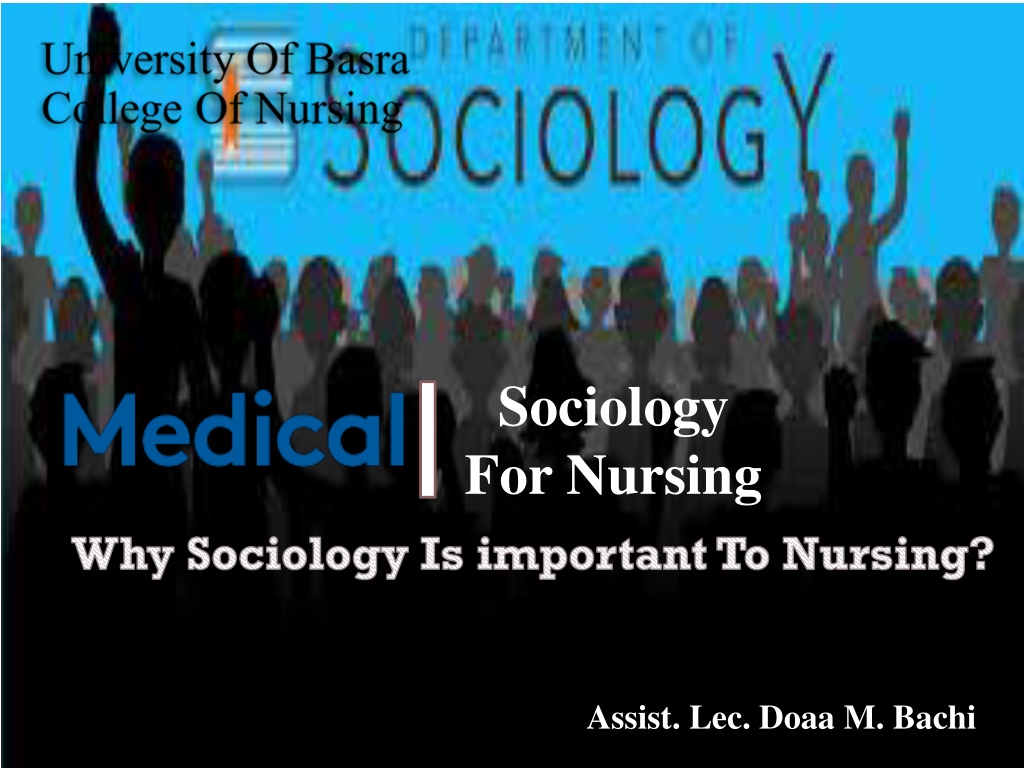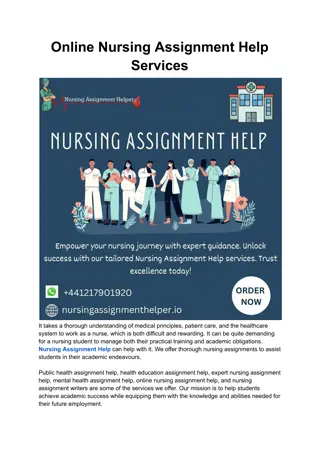Importance of Sociology in Nursing: Insights and Implications
Sociology plays a crucial role in nursing by examining the societal aspects influencing health and illness, including disease distribution, cultural beliefs, social interactions, and the impact of illness on families. Understanding these factors is vital for healthcare providers to deliver effective and culturally sensitive care.
- Sociology in Nursing
- Healthcare Sociology
- Social Factors in Healthcare
- Disease Distribution
- Cultural Beliefs
Download Presentation

Please find below an Image/Link to download the presentation.
The content on the website is provided AS IS for your information and personal use only. It may not be sold, licensed, or shared on other websites without obtaining consent from the author. Download presentation by click this link. If you encounter any issues during the download, it is possible that the publisher has removed the file from their server.
E N D
Presentation Transcript
Sociology For Nursing Why Sociology Is important To Nursing? Assist. Lec. Doaa M. Bachi
Why Sociology Is important To Nursing? Sociology is mainly the study of society, communities and people , whereas nursing is a profession which focused on assisting individuals, families, and communities in attaining, maintaining and recovering optimal health and functioning.
Medical Sociology is concerned with following 1- Description and explanations of theories related to diseases distribution among various population groups. 2- The behaviors or actions taken by individuals to maintain, enhance, and restore health and cope with illness,disease,or disability.
3- People's attitudes and beliefs about health, disease,disability,and medical care providers. 4- Cultural values and societal responses with respect to health,illness,and disability. 5- The role of social factors in the etiology of the disease(e.g.Age,gender,residence,occupation)
Social interaction and health Social interactions can influence behavior and risk factors for disease. For example, those who find themselves surrounded by smoker find it difficult to quit smoking. In addition, person to person transmission of diseases increase in the dense population. Social support is necessary factor in promoting health. Retirement, loss of spouse, or close friend; or changing social role can affect social contact,all are risk factors for disease
Classification of diseases: 1- Acute: Is typically characterized by severe symptoms of short duration (otitis media, appendicitis) 2- Chronic:lasts for an extended period,usually 6 months or longer and often for the person's life. ( DM,MI,HT).
Etiology of diseases: 1- Biological agents:viruses,bacteria,fungi etc. 2-Physical agents:heat,cold,humidity etc. 3-Genetically transmitted disease. 4-Stress
Impact of illness on the family: A person's illness affects not only the person who is ill but also the family and significant others. The kind of effect and its extent depends on: 1-The member of the family who is ill. 2-The seriousness and length of the illness. 3-The cultural and social customs the family follows .
Changes that can occur in the family include: 1-Role changes. 2-Social customs change. 3-Financial problems. 4-Increased stress due to anxiety about outcome of the illness for the client























